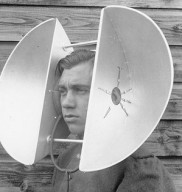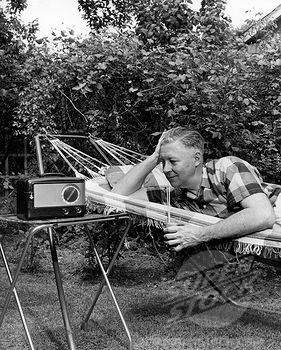5 ways to … improve your listening
1. You have chosen to learn English in an English-speaking country because you will be immersed in the language. So make the best of your time here. You have so many opportunities to listen to spoken language outside the classroom. Watch TV, listen to the radio, go to the cinema, and listen to music – you’ll also get an insight into our culture giving you a better understanding of our language. Take a walk and listen to real conversations – in shops, supermarkets, cafés, at the bus stop, or on the street. And try not to make it too obvious you’re listening in!
2. Listening is probably the most difficult of the four skills (reading, listening, speaking and writing). Why? One reason for this is that words sound very different when they are spoken together to the way they sound on their own. It is very difficult to tell where one word ends and another begins because they are spoken as one continuous stream of sound.
This is known as connected speech. Also, to make speaking easier and quicker many words, particularly grammar words, have weak forms. ‘I’ve been’ is pronounced ‘I’ve bin’ and ‘Are you’ is pronounced ‘Are yeah’, for example. Listen out for weak forms, stress patterns and the way words and phrases change in connected speech.
The more you notice these, the better you will be able to break the continuous stream of speech into easily understandable chunks of language.
3. Listen to something you are interested in or know a lot about. If you have some knowledge of what you are going to listen to you will have a better chance of understanding it. Content that is familiar is easier to comprehend than that which is unfamiliar. You will also concentrate better if you have some interest in the topic.
If you love sports, listen to BBC RADIO 5 – you can listen online at
http://www.bbc.co.uk/5livesportsextra
For music go to http://www.mtv.co.uk/?s_cid=geo-advisory-mtv-com or check out some of the many online radio channels.
And for news http://www.rte.ie/news or http://news.sky.com
4. Listen for short periods, but often. Trying to understand long pieces of listening is useless; you get tired and frustrated and it’s a waste of time. Listening for fifteen to twenty minutes, four or five times a week is much easier to do and easier to digest.
You could do this as you travel to school on the bus or Luas.
5. Listen to a variety of different voices, male, female, young, old, and as many different accents as you can, British, Australian, South African, Irish, American and Canadian. There are also different regional accents. You have probably worked out by now that we all don’t speak like the BBC or Hollywood Actors.
http://www.youtube.com/watch?v=NtB1W8zkY5A
And a sneaky sixth tip!
You don’t have to actively listen to something to improve your listening. It’s amazing how much you can improve your listening subconsciously. When you are doing the washing-up or cleaning, have the radio or the TV on in the background. This helps you to get used to the sounds, rhythm, stress patterns and characteristics of connected speech.
He’s learning English!
(You don’t have to look at the radio, by the way.)




